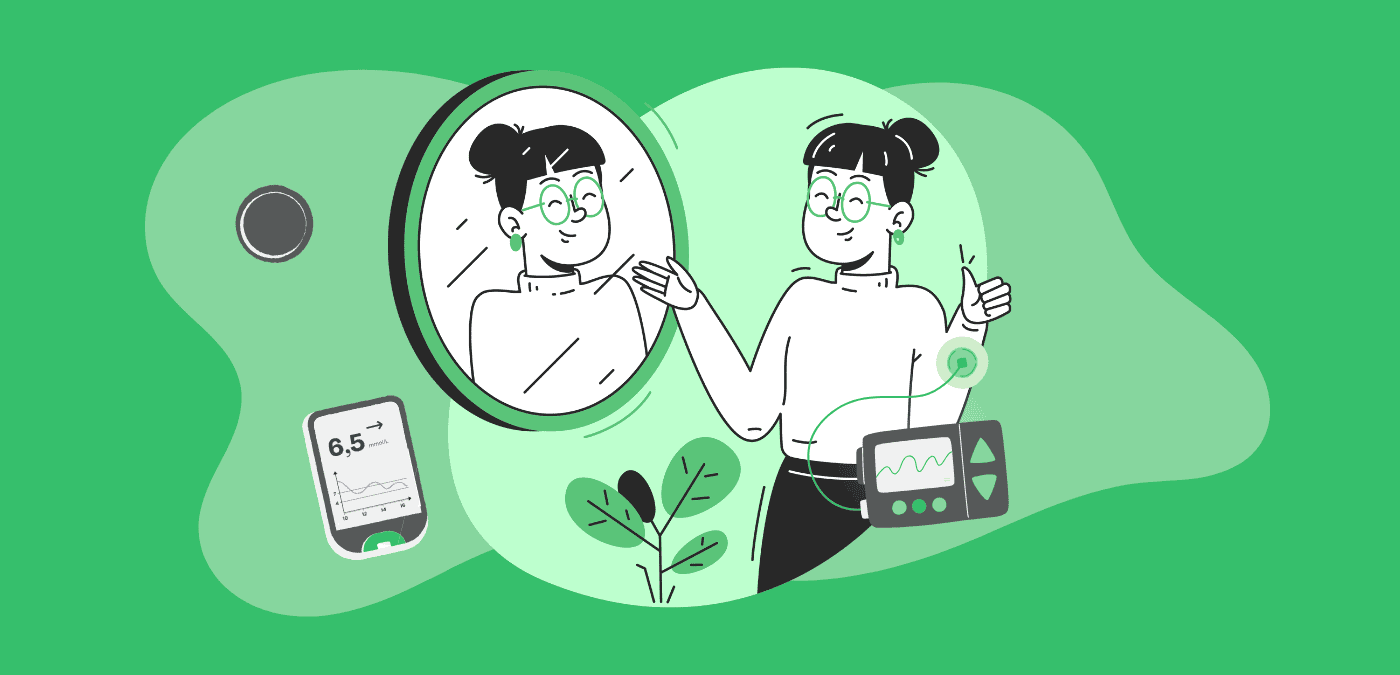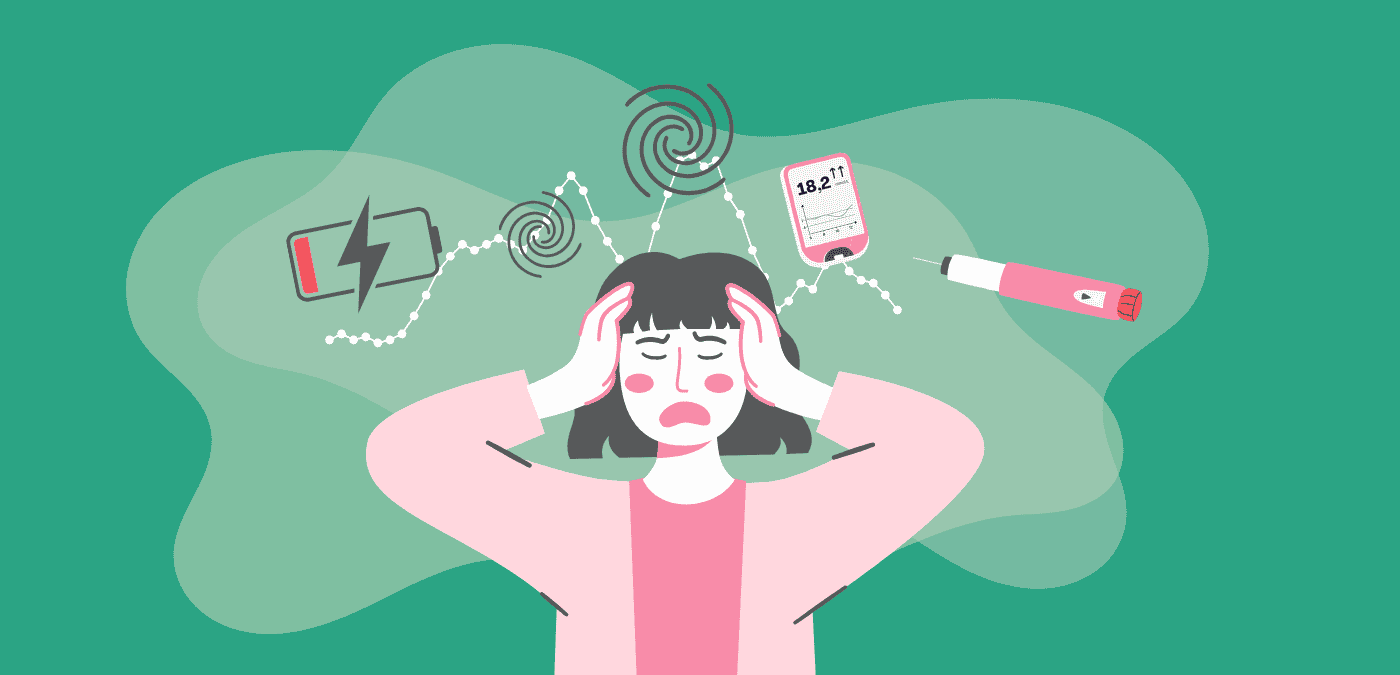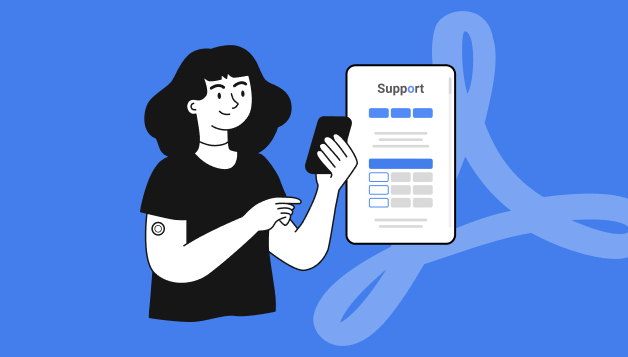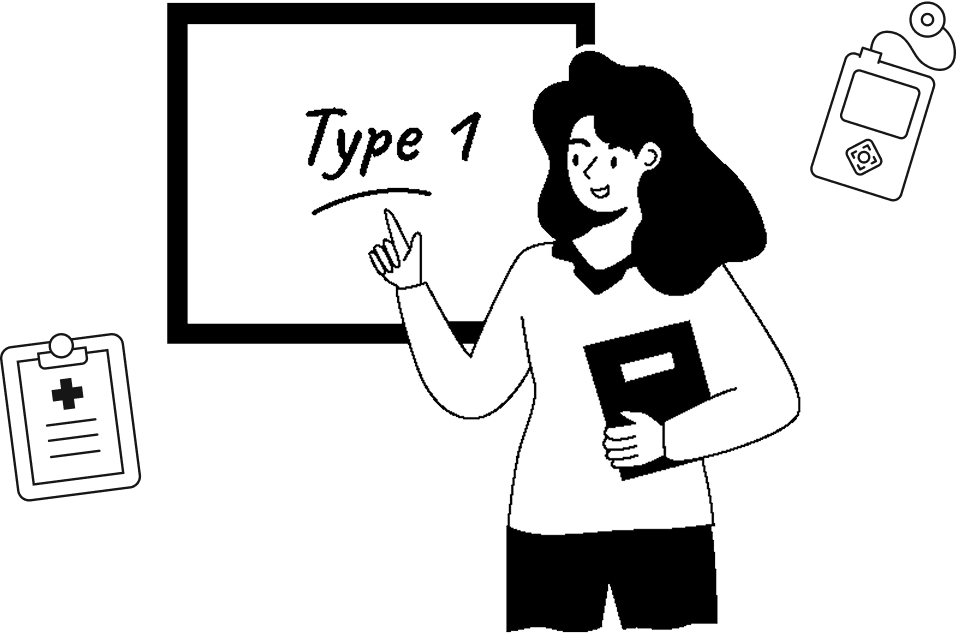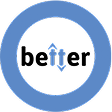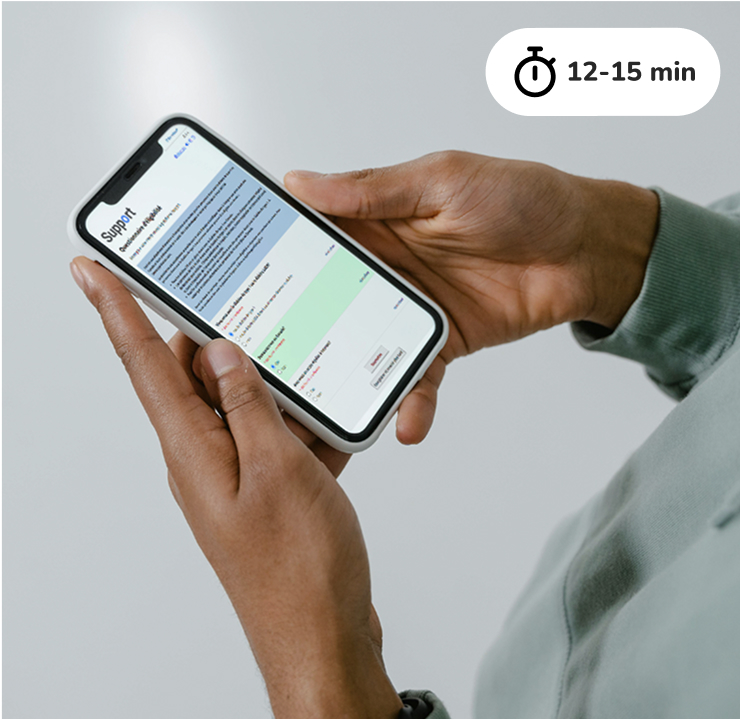Living with type 1 diabetes (T1D) is much more than monitoring blood sugar levels. It requires a constant commitment that involves paying attention to what you eat, administering and adjusting insulin doses, managing medical devices, refilling prescriptions, scheduling medical appointments and so on. All day, every day, without any actual break.
It also means having to adapt to regular physical activity, hormonal variations, shorter nights, stress, and the unexpected. This requires a significant amount of mental and physical energy. Amidst this demanding daily routine, an important factor is often overlooked: the relationship with the body.
Body image: what is it exactly?
It’s not just about what you see in the mirror. Body image is the perception you have of your own body, how you feel about it and, sometimes, how you perceive what others think of it. It evolves with experience, looks, comments … and T1D.
Certain realities of living with T1D can disrupt your relationship with your body, such as:
- Visible devices (e.g., insulin pump, CGM sensor);
- Marks on the skin (e.g., scars, bruises, redness);
- Frequent weight check-ups during medical appointments;
- Clumsy comments from healthcare professionals or family and friends;
- Comments on what you should or shouldn’t eat.
These realities can gradually change how you feel about your body, make you feel “different,” or even make you distance yourself from the body you used to know.
A real impact on well-being
Poor body image can adversely affect mental health and quality of life and manifest itself as:
- Lower self-esteem;
- Chronic stress or increased anxiety;
- A loss of motivation for diabetes management;
- The onset or exacerbation of eating disorders.
Over time, many people also develop a more caring relationship with their bodies. Understanding these issues is a first step to achieving this.
Solid paths to move forward
You can learn to see your body differently; not just as a problem you have to deal with, but as an ally. This will require time, support and gentleness.
Here are a few helpful tips.
- Back to basics
You live, move, love and create, thanks to your body. Refocusing on what it enables you to do can change the way you look at it.
- Out with the bad, in with the good
Certain images shared on social media can make you develop complexes. Unsubscribing from accounts that don’t do you any good, and following those that inspire or reassure you can make all the difference. If some of your loved ones’ comments bother you, don’t hesitate to tell them clearly and kindly not to broach the subject.
- Focus on what makes you feel comfortable
It’s important to choose a method of insulin administration and a CGM system that suit you and you’re comfortable with. If you wear or plan to wear an insulin pump, there are several models in different sizes, and you can customize your devices with accessories you like. If wearing a pump still bothers you, you can always go back to injections.
With CGMs, you can also choose where to apply the sensor so that you’re comfortable. Certain sites that are not approved by Health Canada will still give you valid data. Experience shows that many alternative sites are reliable for assessing blood sugar levels.
Finally, at your medical appointments, don’t hesitate to say you don’t want to be weighed if it makes you feel uncomfortable. You have the right to decide what’s best for you.
- Talk to people who get it
Joining a support group or talking to other people living with T1D can really help with the feeling of isolation. It might help you see that you’re not alone in this experience.
- Ask for help when it’s just too much
A psychologist specialized in body image and diabetes can help you understand your feelings and find tools to feel better about yourself.
Bury the hatchet … gradually
Your body does what it can, every day. It deserves your respect, even when the relationship is complicated. Making peace with it won’t happen overnight, but you can get there.
Find out more
A module on body image and T1D is available when you connect to the Support platform. You’ll also find a wealth of resources on insulin management, nutrition, physical activity, mental health and much more.
Whether you live with T1D (or LADA) or you’re a healthcare professional, create an account now to access practical tips and learn at your own pace.
Written by: Sarah Haag, Clinical Nurse, B.Sc.
Reviewed by:
- Amélie Roy-Fleming, RD, CDE, M.Sc.Support Platform Coordinator
- Rémi Rabasa-Lhoret, MD, PhD
- Anne-Sophie Brazeau, RD, PhD
- Domitille Dervaux, Jacques Pelletier, Michel Dostie, patients partners
